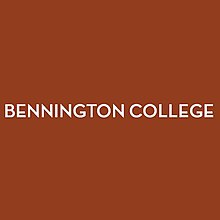Bennington College, established in 1932, is a private liberal arts college nestled in the idyllic setting of Bennington, Vermont. With a relatively small student population, this institution provides a distinctive educational environment that emphasizes personalized learning and intellectual exploration. The college spans across a sprawling campus, characterized by its bold architectural choices and verdant landscapes, offering students not only a robust academic experience but also a scenic backdrop for their scholarly pursuits.
Bennington College stands out for its pioneering approach to higher education through its Plan Process, a distinctive system that allows students to chart their own academic journey in close collaboration with faculty advisors. This individualized plan grants students the autonomy to design their curriculum and integrate diverse disciplines. Another notable feature of the college is the Field Work Term, an annual six-week period wherein students actively engage in internships and opportunities aligned with their studies around the globe, reinforcing the practical application of their academic work. The College's Crossett Library also serves as a rich source of innovation in learning, with its expansive and carefully curated collections, special exhibitions, and digital resources.
The college takes pride in its environment of artistic and intellectual freedom which attracts a diversely talented body of students and faculty. Bennington College's MFA programs, particularly in Writing and Dance, are highly esteemed and have produced a wealth of professionals who have significantly impacted their fields. The Center for the Advancement of Public Action (CAPA), which drives students to tackle real-world issues from climate change to social justice, underscores the college's commitment to fostering a positively impactful and engaged community of scholars. Alumni have left notable footprints in various disciplines, ranging from the arts to sciences, illustrating the success and reach of the Bennington education.
Despite its illustrious profile, Bennington College wrestles with challenges like its relatively high tuition and fees which may pose financial constraints for some students despite the availability of aid. The college's rural location, while picturesque, can be a double-edged sword, as it may limit students' access to certain professional opportunities and cultural experiences typically found in more urban settings. Additionally, the small size of the institution, while fostering intimacy and community, may not provide the breadth of resources and extracurricular activities available at larger universities. These characteristics, unique to the Bennington experience, are worth considering for prospective students seeking a balance between an individualized education and a traditional college experience.



